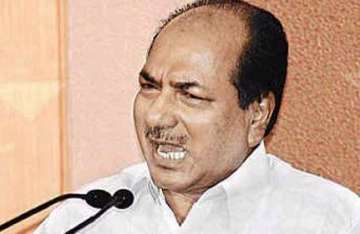India on Thursday said it was closely watching the Chinese military build-up and taking all necessary measures to shape its response, even as it maintained that the 3,500-km range Agni-III ballistic missile was not aimed at any particular country.
"We are carrying out continuous appraisals of its (China's) military capabilities. At the same time, we are also taking all necessary measures to shape our responses," Defence Minister A K Antony told an Asian Security Conference organised by Institute of Defence Studies and Analyses in New Delhi.
He said bilateral relations with China was progressing and that both countries had invested in confidence-building measures aimed at enhancing understanding and trust-building.
"Every nation has to be adequately prepared to safeguard its territorial integrity and sovereignty. We will make all-out efforts to strengthen our security and safeguard our people. However, our defence policy is neither aggressive, nor is it aimed at any particular country," he said.
"We only seek to build an effective deterrent capability to safeguard ourselves. The recent successful test of Agni-II needs to be seen in this context. It is not aimed against any particular nation," he said. The nuclear-tipped Agni-III has all cities in both Pakistan and China, including Beijing, within its striking range and will be India's second strike deterrent. The missile was successfully tested on Sunday ahead of its induction into India's Strategic Forces Command.
Antony said India had always supported complete elimination of all nuclear weapons and had strongly and voluntarily committed to 'No First Use' of nuclear weapons. "We also welcome the ongoing debate on nuclear disarmament and has been steadfast in the support of the only two non-discriminatory treaties banning weapons of mass destruction -- the Chemical Weapons Convention (CWC) and the Biological and Toxins Weapons Convention (BTWC)," he added.
The Defence Minister said in keeping with India's obligation under the CWC, it had last year completed the process of destruction of all chemical weapons, which highlighted the long-standing support for commencement of negotiations on international treaty on Nuclear Weapons Convention (NWC) for elimination of nuclear warheads globally and verifiably.
"We would also support a process that de-legitimises nuclear weapons, just as chemical and biological weapons were, prior to their elimination through treaties," he added.
Noting that today India and the international community faced the dangerous possibility of nuclear materials and technologies falling into the hands of terrorists, Antony said India looked forward to explore the ideas further in a spirit of shared concerns and convergence of interests with all the nations. PTI
Latest India News
